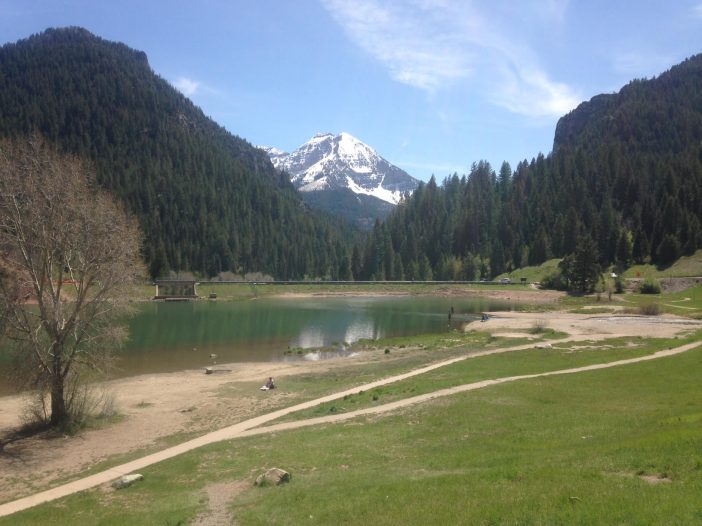
When I was in college, I went to north Georgia for a holiday weekend. I’d never seen mountains and was eager to scratch that item off my bucket list. As luck would have it, I arrived at night when the mountains were invisible against the dark sky. I awoke the next morning and peeped through the window, thrilled to finally say I’d seen a mountain. From the daylight basement, I got a decent view of some grass and bushes – oh, and a fence! – but no mountains.
I ran upstairs and outside, only to be disappointed again. When I expressed my frustration to my host, she failed to hide her smile behind her coffee cup.
“Honey, you can’t see the mountains from here because you are in them.”
I felt like an idiot. My gracious host loaded me up in the car. We drove down the mountain, and I finally, finally got my wish.
They were smaller than I thought they’d be.
So it is with the terrain of our minds. When we are immersed in our problems, we can’t see them clearly. Nor can we see their actual size. It’s only when we come down from Stress Mountain that we can put everything into perspective.
We do that for our patients. Our medical record is sometimes called a SOAP (subjective, objective, assessment, plan). I like that acronym because organizing the patient in this way really cleans up the picture.
The next time you are “in the mountains”, SOAP your situation. Write down what you’re thinking and feeling and then look objectively at why. For instance, you’re feeling short-tempered and exasperated at work. You’re aggravated when you get home. You feel overwhelmed and alone in your struggle.

If you look carefully at your day, you’ll likely see cases that were difficult or didn’t work out the way you’d hoped. You might see a case where a lot of research needed to be done, and you didn’t feel like you had the time. While you worried about those cases, everything else you had to do seemed annoying. The root of your anger at work was anxiety. When you get home, there are many things to be done. Perhaps you typically do them while your family accomplishes their own tasks. You don’t ask for help and are irritated when none is offered. You’ve not set boundaries out loud but are upset when people step over them.
If you remember that the only person you can control is you, the solution is to change your own behavior. AHA! We have a (P)lan! Here are some possibilities:
- Get to work early, leave for lunch later, or stay after to do research and catch up
- Ask a colleague if they’ve seen similar cases and what they did for them.
- Delegate some other tasks to free up time for the tough cases.
- See if a shift in schedule can help ease the burden
- Call home and ask for someone else to get dinner ready
- Do research at home while someone else gets dinner ready
Making that list took about two minutes. Your particular solution may not be in there, but at least you’ve given yourself some options for going forward.
Sometimes, you have to start with putting the problem aside until you are most capable of handling it well. Meditation and exercise are excellent ways to come down off the mountain so you can better problem solve. Don’t forget that exhaustion, hunger, and thirst can also make problems seem bigger than they are. A good night’s sleep, a healthy meal, or taking a break to drink some water before tackling the mountain can help.
Grief can make everything seem like a mountain. If you are grieving a loss, don’t make any big decisions until you are through that process. When I have lost a loved one, I’ve considered quitting my job, ending my relationship or selling my house. These were all knee-jerk reactions that had no logical basis. I was simply trying to run away from the pain.
If investigating your particular problem isn’t going well, ask an honest friend, a mentor, or a therapist to help you. Asking for help is a strength – it takes guts to admit you can’t handle everything alone. Do whatever it takes to descend back to “see” level. Those mountains are much prettier at a distance!